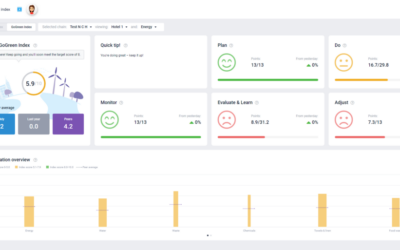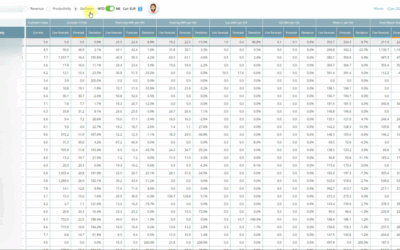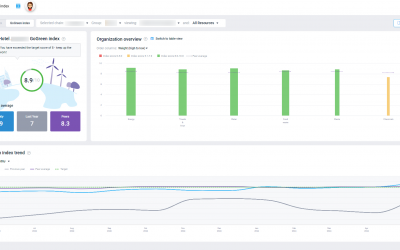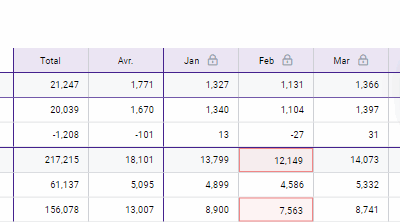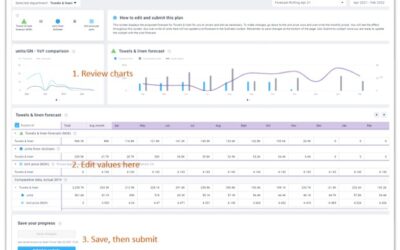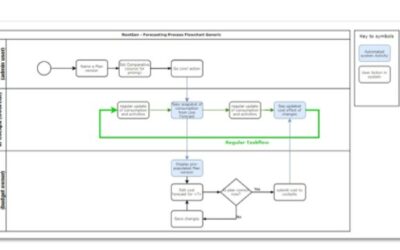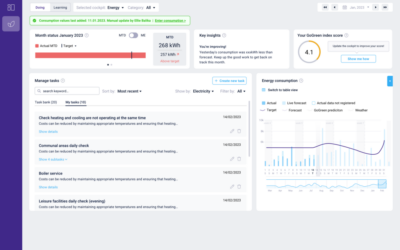Food cost cockpit An enhancement has been made to the GoGreen Food waste cockpit. This update applies to all properties that import their food waste data from eSmiley or Winnow. From the Kitchen labor cockpit, you can navigate directly to the Food cost or Food...
gogreen
GoGreen index calculation enhancement – 04.23
On April 20, 2023 an updated version of the GoGreen index will be released. The GoGreen index view will remain the same, however you may notice changes to index scores, due to additional measurements that have been added. The main purpose of this update is to: Have a...
GoGreen benchmarking enhancement – 01.23
GoGreen is now a benchmarking option in the regular benchmarking page in PMI. This feature gives you the opportunity to see how you are managing your environmental resources compared to the forecast, as well as your peers, and helps to keep you on track. Here, you can...
GoGreen index: How are the measurements calculated?
The table below explains the calculations used for each of the measurements that make up the GoGreen index. Each action has a different weighting, according to how crucial it is. The more crucial an action is, the greater impact it will have on a department's index...
GoGreen index overview
Navigating the GoGreen Index Dashboard The GoGreen Index Dashboard is accessible from the GoGreen home page by clicking the GoGreen Index tile. It provides a consolidated overview of your property’s sustainability performance across multiple resources. Top Summary...
Sense check mode explained
What is sense check mode? Sense check is a feature to help minimize errors in your data. It highlights obvious errors and values that seem extreme so you can review, correct or validate as needed. Sense check appears as an option on pages in PMI that have data tables,...
How to edit a GoGreen plan
What is GoGreen Planning? Planning is a new module that initially supports the GoGreen cockpits with financial elements for environmental targets. This module is prepopulated using the latest Live Forecast and estimates based on historical financial (P&L) data....
Intro to NextGen GoGreen Planning
What is GoGreen planning? Planning is a new module that initially supports the GoGreen cockpits with financial elements for environmental targets. This module is prepopulated using the latest Live forecast and estimates based on historical financial (P&L) data....
GoGreen Doing Cockpit overview
Navigating the GoGreen Cockpit The GoGreen Cockpit serves as your central hub for monitoring and managing your property’s environmental resource consumption. Unlike other cockpits, its layout is specifically designed to focus on sustainability metrics. Top navigation:...
Useful links for sustainability and environmental management best practice
See below for external links that provide additional insights into how to reduce consumption and effectively manage your environmental resources. Activities to reduce consumption: EU best practice Peak time demand management:...


